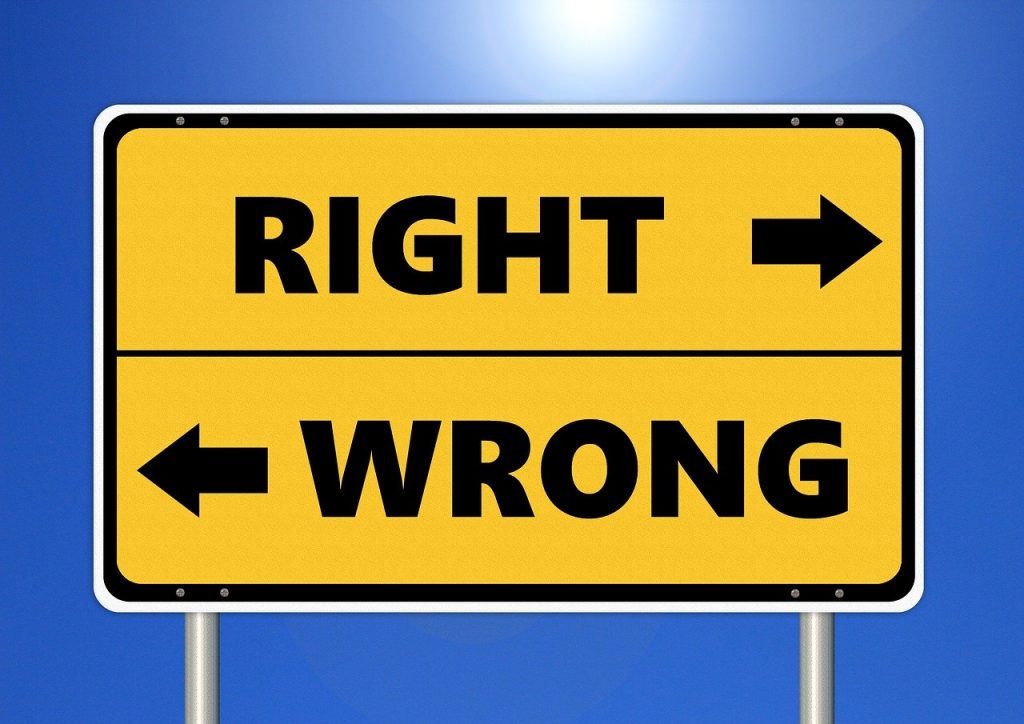There are aspects of the Prosperity Gospel that can be considered heresy. On the other hand, it has teachings that line up with biblical scripture. Most doctrines are neither all bad nor all good. The key for any believer is to do what 1 Thessalonians 5:21 says: “But test them all; hold on to what is good (NIV).” To fully determine whether the Prosperity Gospel is a heresy, we must define terms and look closely at this gospel.
Table of Contents
- Watch the Video
- A Definition of Heresy
- A Glimpse Into the Prosperity Gospel
- It’s Not the Gospel of Jesus
- Recap
- Find Out More
Watch the Video
A Definition of Heresy

In religion, heresy is a doctrine or opinion that goes against the traditional or accepted beliefs of a religion, church, or denomination. In this regard, the Prosperity Gospel would be considered heresy.
Here’s one reason why.
For years, mainstream Christianity viewed getting rich in a negative light. Additionally, preaching about money was taboo. Of course, the Prosperity Gospel came along and turned these views topsy-turvy. This gospel proclaimed that God wants to bless his people with wealth, health, and material possessions.
Here’s an issue.
The definition of heresy is broad. Almost any doctrine or teaching in the body of Christ could be considered heresy by anyone. So, we must use common sense and take a measured approach before labeling a doctrine as heresy. In other words, something is not heresy simply because we don’t like or agree with the message.
A Glimpse Into the Prosperity Gospel
The Prosperity Gospel proclaims God rewards Christians with health and wealth. The key to unlocking these blessings is faith. On the surface, there’s nothing wrong with this message. Many individuals in the Bible were wealthy. Under the Mosaic Law, the Lord promised the children of Israel blessings of health and wealth for their obedience to his statutes (Deuteronomy 7:12-13).
Healing was an integral part of Jesus’ ministry. In this regard, telling Christians they can use their faith to overcome sickness and financial hardships is not heretical. The Prosperity Gospel does have its shortcomings.
• It emphasizes tithing and “sowing seeds” as a prerequisite to receiving God’s blessings. This requires tithing or donating money to Prosperity Gospel ministries.
• It places blame on believers. If you didn’t get the desired results, such as a house, car, or healing, it’s because you lacked faith. There’s something you did wrong. This can make believers feel condemned.
• It places too much emphasis on obtaining material riches. It fosters a spirit of greed and materialism. It encourages people to seek God for what he can do for them instead of seeking him for who he is (John 6:26).
John 6:26
Jesus replied, “I tell you the truth, you want to be with me because I fed you, not because you understood the miraculous signs.
New Living Translation (NLT)
• The Prosperity Gospel doesn’t address the practical (or natural) circumstances contributing to debt, poverty, and financial lack. While many Prosperity Gospel preachers were saying, “Name it and claim it” and “money cometh,” they should have provided their congregations with financial literacy and education classes.
A well-known Prosperity Gospel preacher admitted that many people don’t have a money problem. They have a wisdom problem. In other words, they are not wise in handling their finances.
Let’s be honest.
A person who can’t manage $10 won’t be able to manage $1M. So praying, tithing, and having faith for more money is not the solution. Praying for God to improve one’s money management skills is a better solution.
It’s Not the Gospel of Jesus
Jesus’ ministry didn’t teach people how to get rich. He preached the Good News that the Kingdom of God is at hand (Mathew 3:2), along with healing the sick and casting out demons (Luke 5:17). He was not a Prosperity Gospel preacher, nor were his disciples or the Apostle Paul. This is a major reason the Prosperity Gospel gets labeled a heresy because it’s a message Jesus didn’t preach.
Indeed, Jesus didn’t teach what we know as the Prosperity Gospel. His focus was on believers having eternal life. He didn’t want us distracted, preoccupied, or obsessed with the temporal, material things of the world. However, Jesus didn’t ignore the material needs of people (Matthew 14:19-21).
There’s a common theme throughout the Old Testament, the Gospels, and the New Testament. It’s summed up this way: “All things are possible with God (Matthew 19:26). The “all” includes financial prosperity.
The Bible also teaches us we can have whatever we pray for (Mark 11:24). The “Whatever” is all-inclusive, so material riches aren’t excluded. Even though there is no Prosperity Gospel in the Bible, the Bible does support God’s people being prosperous in all areas of life: spiritually, emotionally, physically, and materially.
Recap
Is the Prosperity Gospel a heresy? In a broad sense, it could be classified that way. Jesus, the disciples, and the Apostle Paul didn’t teach a Prosperity Gospel message. They didn’t teach or promise believers they would become rich through faith. Obtaining money and material wealth wasn’t the focus of New Testament Christianity.
Additionally, the Prosperity Gospel has its shortcomings. One, it makes so-called tithing and “sowing seeds” a determining factor in whether God blesses you. It spreads a spirit of greed and materialism throughout the body of Christ.
It makes acquiring material things a priority over having a relationship with God. Finally, it doesn’t offer believers practical tools, resources, and information for overcoming their financial troubles or health issues.
While the Prosperity Gospel has its flaws, it’s not all bad. The basic premise of the doctrine is biblically sound. God wants his people to prosper in all areas of life, including our finances.
Find Out More

Discover the hidden truth about tithes the church doesn’t want you to know. Click here.








